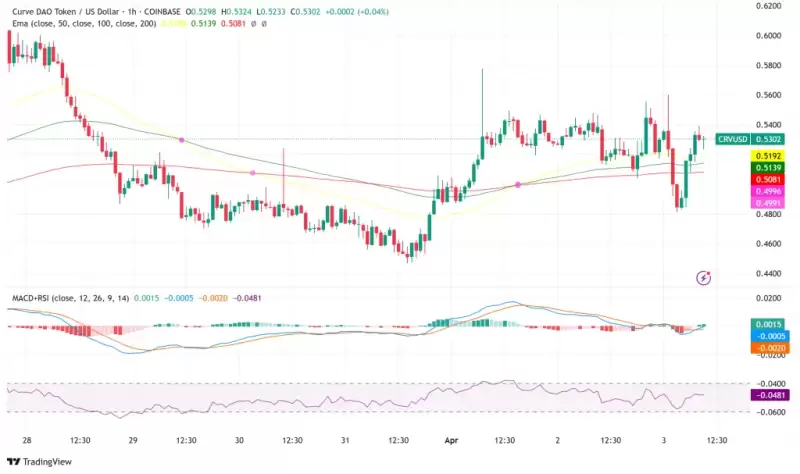 |
|
 |
|
 |
|
 |
|
 |
|
 |
|
 |
|
 |
|
 |
|
 |
|
 |
|
 |
|
 |
|
 |
|
 |
|
Cryptocurrency News Articles
Kano Govt’s Free Education Law Remains Toothless As Children Roam Streets For Alms, Hawking
Dec 30, 2024 at 05:18 pm

Despite compulsory education laws and a large portion of the state's annual budget allocated to education, many children in Kano State, Nigeria, are still engaged in street begging and hawking during school hours. This trend violates the state's Free and Compulsory Universal Basic and Secondary Education Law 2020, which mandates the government to sponsor all children from primary to secondary school.
Eleven-year-old Ibrahim Fati is one of the hundreds of children found on Kano streets at school time. She left school because her widowed mother could not afford her learning materials. Sighted by a reporter along BUK road at Kofar Famfo around 9 a.m. on Wednesday, 20 November, Fati hurriedly left a motorist who resisted her unwelcome gesture to clean his car.
“I left school because my mother could not afford to pay for my learning materials,” Fati responded soberly when asked why she was roaming the street during school hours.
Parents Monitor from Vantage Position, Wait for Alms Remittance
“I like to go to school, but there is no money to feed; even two of my siblings are also on this road begging, and our mother is under that kiosk (pointing) to collect the money for feeding,” she explained.
Fati's revelation led to a conversation with her mother, Ibrahim Hadiza, who blames poverty for her actions and believes people have low empathy for adults begging on the streets, unlike children.
“I lost my husband two years ago, and nobody is there for us, which is why we are doing this,” she said.
While the chat with Hadiza lasted, Fati’s two siblings between ages 7 and 9 kept interjecting the conversations at about ten-minute intervals to remit the money they got from motorists.
This trend also takes place at Kofar Kabuga junction along Gwazo Road. But parents and their children at this location resisted several attempts to speak to them. They signaled themselves and vanished into the distance.
Schoolgirls Turn Kano Main Roads to Mini-Markets
Similarly, places like Zoo Road by Court Road and Panshekara Junction in Kumbotso LGA have turned into a mini-market for school-age girls. Some of them come from Kura LGA, about 30 kilometers away, to sell perishable goods during school hours.
“We are about 30 in number, coming from Karfi village daily. We used to hire about six tricycles from Kura to come and sell tomatoes here (Zoo Road) and return home in the evening,” Khadija Jubril said.
Khadija, 10, explained that she dropped out of Galinja Primary School in Kura LGA and has since been selling perishable goods for her parents.
Unlike Khadija, eighteen-year-old Auta Haruna, from the same village, never attended a formal school. She has been saving money from her daily sales to buy clothing materials for her forthcoming wedding next month.
“I’m doing this (hawking) to buy clothes and other materials for my wedding. I’m sure my hustling will end very soon when my husband eventually marries me and starts taking care of me," she said.
The situation is not different along Panshekara Road. The area is experiencing a daily influx of tween girls from rural areas to the pyramid city for school-time petty trading adventures.
These communities include 'Dan Baure, Tashar 'Kaba, Tashar Ice, and Kwanar Zuwo, all situated in the Madobi local government area of Kano State.
Sadiya Yahaya, 16, comes from 'Dan Baure village in Madobi to sell boiled cassava daily at Sabon Titi, in Kano City.
“I used to collect raw cassava from some vendors; my mother does the cooking very early, while I transport it to the city for sale. I dropped out of JSS 1 class years back,” she narrated.
Her story is similar to that of Saliha Zailani, 14, who has been selling peanuts for three years from morning till evening in the Sabon Titi area.
“Most of my friends and I from Madobi LGA usually assemble here (Sabon Titi) daily from morning to evening to sell some edible items such as boiled cassava, groundnuts, peanuts, Kuli-Kuli, and cooking oil. We remit the monies to our parents in the evening."
However, these girls are among the significant number of out-of-school children in Kano. Their revelations showcase how poverty and other socio-economic factors are driving out-of-school children in the state.
In October 2023, UNICEF reported that Kano State has at least 989,234 out-of-school children. This is a significant increase from 2016, when only 81,919 children were out of school.
Disclaimer:info@kdj.com
The information provided is not trading advice. kdj.com does not assume any responsibility for any investments made based on the information provided in this article. Cryptocurrencies are highly volatile and it is highly recommended that you invest with caution after thorough research!
If you believe that the content used on this website infringes your copyright, please contact us immediately (info@kdj.com) and we will delete it promptly.
-

- Pi Network Price Crashes Hard as Binance Skips the Token in Its Latest Vote to List Initiative
- Apr 03, 2025 at 03:00 pm
- Pi Network supporters are once again left frustrated as Binance skips the token in its latest Vote to List initiative. This marks the second time the world's largest exchange has ignored Pi, shutting down hopes of an imminent listing.
-

-

-

-

-

-

-

- Bitcoin (BTC) ETF Inflows Have Surged Again as Investors Ignore Trump's Reciprocal Tariffs
- Apr 03, 2025 at 02:45 pm
- Inflows into spot Bitcoin ETFs have surged once again as investors chose to look past the Trump reciprocal tariffs. The net inflows across all US ETFs for Bitcoin stood at $220 million
-

























































